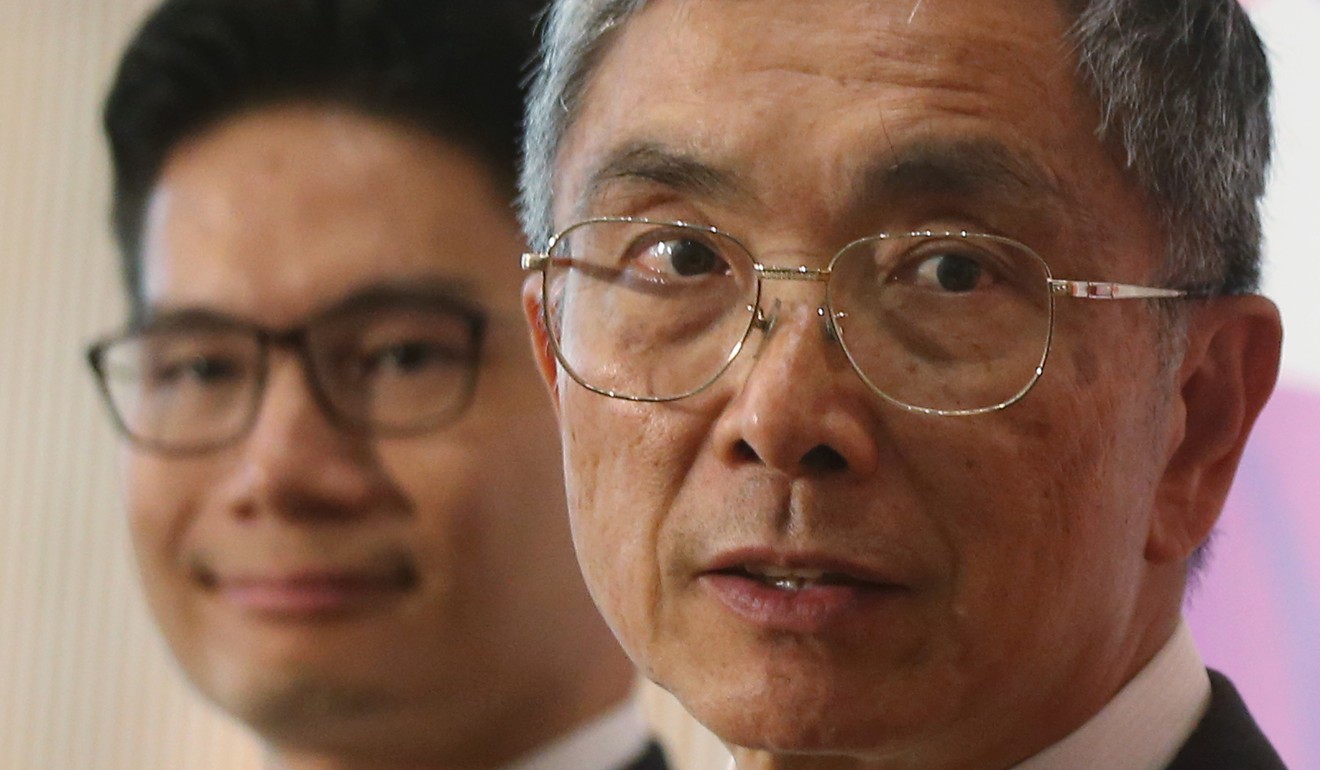
Hong Kong finance chief Paul Chan defends business registration fee amid criticism from World Bank
City slipped to fifth in World Bank’s ranking of the easiest places to do business, with fee said to be a factor
The financial secretary has defended his decision earlier this year not to waive the annual business registration fee, even though the World Bank said it had weakened Hong Kong’s competitiveness.
Paul Chan Mo-po said the HK$2,000 fee was a “trivial” amount to a new business.
The city slipped one place to fifth in the World Bank’s 2018 ranking of the easiest places to do business, announced on Wednesday. The report said Hong Kong had made starting a business more expensive partly due to the annual registration fee.
Hong Kong’s finance chief Paul Chan defends his budget’s lack of handouts
“But one has to understand that the registration fee is only HK$2,000 for a year, which is in fact trivial in a company’s operation,” Chan said on Friday morning. “I think there may be some misunderstandings here and we will explain to them.”
But he agreed with the report that Hong Kong should improve its insolvency policy.
“Ever since I took over the position of financial secretary, this has been an item quite high on my agenda,” Chan said. He said he had asked the Financial Services and the Treasury Bureau to give priority to legislation to build a proper insolvency regime.

A government spokesman on Wednesday said a bill had been prepared for the introduction of a statutory corporate rescue procedure that would help strengthen the regime.
The international financial body’s annual Doing Business Report, introduced in 2003, measures the ease of doing business in 190 economies using 11 indicators on business regulation, such as how easy it is to start a business, protect minority investors and get credit.
Hong Kong ranked highly in four indicators: starting a business (third); paying taxes (third); access to electricity (fourth); and construction permits (fifth).
Hong Kong jumps three places in global competitiveness index to reach 6th
But the city had a few lower scores in the areas of trading across borders, resolving insolvency and registering property.
Chan also responded to questions over the Mandatory Provident Fund Schemes Authority’s (MPFA) study on allowing pension scheme members to withdraw part of their accrued benefits before reaching retirement age for first home purchases, amid growing public calls for more affordable housing.
“This suggestion involves the issue of retirement protection on one hand, and the issue of individuals’ risk over the investment property market on the other hand,” he said, adding that the government would consider the study from the MPFA with caution.
Hong Kong’s competitiveness fades with record home prices, while New York keeps its allure
Speaking at the Legislative Council on Wednesday, Secretary for Financial Services and the Treasury James Lau said it was inappropriate to compare the local MPF system with Singapore’s Central Provident Fund (CPF), which allows partial withdrawal of accrued benefits for home purchases.
“In the Singaporean system, there are three sub-accounts in a member’s savings scheme for retirement, home purchase and medical purposes respectively; and the contribution rate of CPF could reach 37 per cent,” Lau said.
The total contribution rate of both employers and employees is only 10 per cent under the MPF system.
“The government will consider all relevant factors holistically, and study carefully whether that reason is congruous with the policy objectives of establishing the MPF system,” he said.

